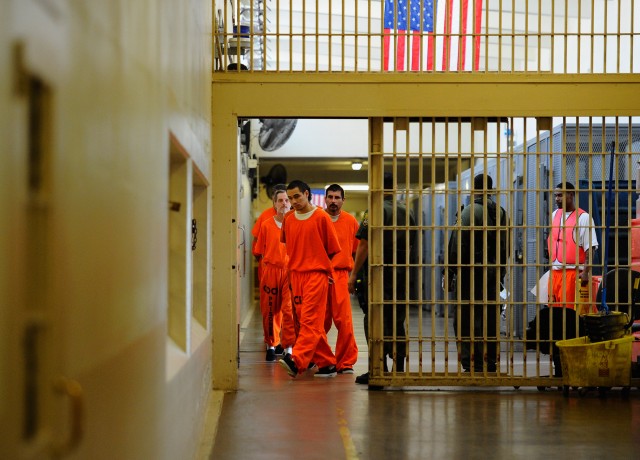California has begun releasing some nonviolent prisoners early in order to meet a court order to ease overcrowding in the state's prison population.
Those early releases began two weeks ago, according to a Los Angeles Times report Tuesday.
Back in February, a panel of federal judges agreed to give Gov. Jerry Brown two more years to meet the court's inmate population targets. The state remains more than 5,000 inmates over that target.
The Brown administration has estimated that about 1,400 inmates would be released early over the federally granted two-year period.
L.A. Times reporter Paige St. John spoke with KQED's Mina Kim about the releases (listen to the interview below). St. John said the California Department of Corrections and Rehabilitation has not told her how many inmates have been released so far.
